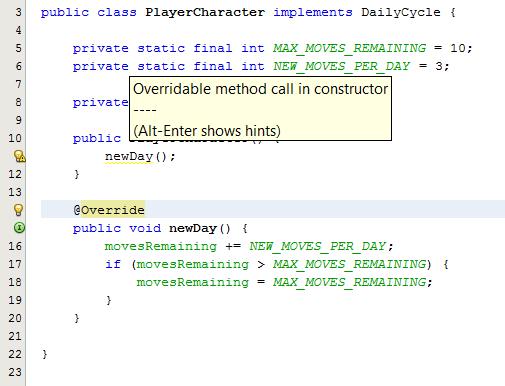private void genericErrorHandler(java.awt.event.AWTEvent evt) {
String componentName = Awt2.getComponentVariableName(evt.getSource());
System.out.println(componentName);
}
Here's the code to make the above code work...
import java.awt.Component;
import java.lang.reflect.Field;
/**
* additional utilities for working with AWT/Swing.
* this is a single method for demo purposes.
* recommended to be combined into a single class
* module with other similar methods,
* e.g. MySwingUtilities
*
* @author http://javajon.blogspot.com/2013/07/java-awtswing-getcomponentvariablenamec.html
*/
public class Awt2 {
/**
* substitute for component.getName() when used in NetBeans or other IDE
* that creates class fields to hold the components. uses reflection to
* search through class fields for a match.
* @param component the component to look for
* @return hopefully the variable name used to hold this component
*/
static public String getComponentVariableName(Object object) {
if (object instanceof Component) {
final Component component = (Component) object;
final StringBuilder sb = new StringBuilder();
// find the form where the variable name would be likely to exist
final Component parentForm = getParentForm(component);
// loop through all of the class fields on that form
for (Field field : parentForm.getClass().getDeclaredFields()) {
try {
// let us look at private fields, please
field.setAccessible(true);
// get a potential match
final Object potentialMatch = field.get(parentForm);
// compare it
if (potentialMatch == component) {
// return the name of the variable used
// to hold this component
if (sb.length() > 0) sb.append(",");
sb.append(field.getName());
}
} catch (SecurityException | IllegalArgumentException
| IllegalAccessException ex) {
// ignore exceptions
}
}
if (sb.length() > 0) {
return sb.toString();
}
}
// if we get here, we're probably trying to find the form
// itself, in which case it may be more useful to print
// the class name (MyJFrame) than the AWT-assigned name
// of the form (frame0)
final String className = object.getClass().getName();
final String[] split = className.split("\\.");
final int lastIndex = split.length - 1;
return (lastIndex >= 0) ? split[lastIndex] : className;
}
/**
* traverses up the component tree to find the top, which i assume is the
* dialog or frame upon which this component lives.
* @param sourceComponent
* @return top level parent component
*/
static public Component getParentForm(Component sourceComponent) {
while (sourceComponent.getParent() != null) {
sourceComponent = sourceComponent.getParent();
}
return sourceComponent;
}
}
Using the above code, here's an example of a global AWT/Swing event catcher that just dumps everything to the system console...
Toolkit.getDefaultToolkit().addAWTEventListener(new AWTEventListener() {
@Override
public void eventDispatched(AWTEvent event) {
System.out.print(Awt2.getComponentVariableName(event.getSource()));
System.out.print(": ");
System.out.print(event.paramString());
System.out.println();
}
}, -1L);

